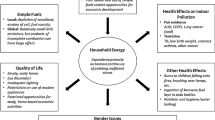Abstract
A survey-based research study was conducted to analyze sustainability practices of large U.S. corporations in their domestic and international operations. Large U.S. corporations were slow to address global environmental challenges, but a majority of them now demonstrate a clear understanding of their responsibilities. Most large U.S. corporations are proactively involved in sustainability and environmentally friendly measures, and their involvement at home is more intense than abroad. Analyses revealed that U.S. corporations engage in eight activities related to sustainability: investing in energy-efficient methods, generating electricity from solar power, generating electricity from wind power, using biofuels, trading carbon credits, supporting environmental organizations, generating electricity from biomass, and generating electricity from hydropower. Of these, only generating electricity from biomass and hydropower were not significantly different with respect to U.S. corporations’ foreign and domestic implementation. This paper represents the first attempt to determine whether and how U.S. corporations’ efforts to promote sustainability differ with respect to their operational locus (domestic or overseas).
Similar content being viewed by others
References
Aguilera-Caracuel, J., Aragón-Correa, J. A., & Hurtado-Torres, N. E. (2010). The influence of environmental international diversification on the proactive environmental strategy of small and medium enterprises. In J. Pla-Barber & J. Alegre (Eds.), Reshaping the boundaries of the firm in an era of global interdependence (progress in international business research) (Vol. 5, pp. 97–115). Brussels: Emerald Group Publishing Limited.
Birkinshaw, J., & Pedersen, T. (2009). Strategy and management in MNE subsidiaries. In A. M. Rugman (Ed.), Oxford handbook of international business (2nd ed., pp. 367–388). Oxford, UK: Oxford University Press.
Carbon Disclosure Project. (2012). Carbon disclosure project—Global climate change reporting system. Retrieved August 19, 2012, from https://www.cdproject.net/en-US/Results/Pages/reports.aspx.
Carroll, A. B. (1979). A three-dimensional conceptual model of corporate social performance. Academy of Management Review, 4(4), 497–505.
Christmann, P., & Taylor, G. (2001). Globalization and the environment: Determinants of firm self-regulation in China. Journal of International Business Studies, 32(3), 439–458.
Committee for Economic Development. (1971). Social responsibilities of business corporations. New York: CED.
Corporate Knights. (2011). Global 100: Most sustainable corporations in the world. Retrieved May 11, 2011, from http://www.global100.org/annual-lists/2011-global-100-list.html.
Corporate Knights. (2012). Global 100: Most sustainable corporations in the world. Retrieved June 17, 2012, from http://www.global100.org/annual-lists/2012-global-100-list.html.
Davis, C. & Janoff, A. (2005). Greenhouse gas management strategies for U.S. corporations. The Environmental Counselor, 15, 79–91.
Dow Jones Sustainability Indexes. (2011). Dow Jones sustainability indexes. Retrieved February 20, 2012, from http://www.sustainability-index.com/.
Dow Jones Sustainability Indexes-United States. (2011). Dow Jones United States sustainability index. Retrieved accessed February 17, 2012, form http://www.sustainability-index.com/djsi_pdf/publications/Factsheets/SAM_IndexesMonthly_DJSIUS.pdf.
Drezner, D. (2000). Bottom feeders. Foreign Policy, 122(1), 64–73.
Ecomagination. (2011). The Ecomagination Challenge phase II: Powering your home. Retrieved May 11, 2012, from http://www.ecomagination.com/.
Elkington, J. (1998). Cannibals with forks: The triple bottom line of 21st century business. Philadelphia, PA: New Society.
Fleming, P. (2005). Shareholders seek climate risk disclosure. Business & the Environment with ISO 14000 Updates, 16(7), 9–10.
Fthenakis, V., Mason, J., & Zweibel, K. (2009). The technical, geographical, and economic feasibility for solar energy to supply the energy needs of the US. Energy Policy, 37(2), 387–399.
Hancock, E. E. (2005). Red dawn, blue thunder, purple rain: Corporate risk of liability for global climate change and the SEC disclosure dilemma. Georgetown International Environmental Law Review, 15(2), 233–252.
Hart, S. L. (1997). Beyond greening: Strategies for a sustainable world. Harvard Business Review, 76(1), 66–76.
Hawken, P. (1993). The ecology of commerce. New York: HarperCollins.
Nastu, P. (2008). American companies embrace green technology. eJournal USA, 13(33). Retrieved September 12, 2011, from http://www.america.gov/media/pdf/ejs/0308.pdf.
Rask, M., & Lauring, J. (2012). Patterns of sustainability values among subsidiaries. International Journal of Sustainable Strategic Management, 3(3), 193–204.
Rousseau, A. (2009). Sustainable corporate culture through sustainable human resources systems. Duke Space, 19 April. Retrieved February 19, 2012, form http://dukespace.lib.duke.edu/dspace/handle/10161/953.
Snider, J., Hill, R., & Martin, D. (2003). Corporate social responsibility in the 21st century: A view from the world’s most successful firms. Journal of Business Ethics, 48(2), 175–187.
Tietenberg, T., & Lewis, L. (2009). Environmental economics & policy (6th ed.). Upper Saddle River, NJ: Pearson Education.
Truini, J. (2004). Survey: Firms addressing climate change. Waste News, 10(3), 13.
White, A. (2006). The greening of the balance sheet. Harvard Business Review, 84(3), 27–28.
Author information
Authors and Affiliations
Corresponding author
Rights and permissions
About this article
Cite this article
Hashmi, M.A., Damanhouri, A. & Rana, D. Evaluation of Sustainability Practices in the United States and Large Corporations. J Bus Ethics 127, 673–681 (2015). https://doi.org/10.1007/s10551-014-2056-4
Received:
Accepted:
Published:
Issue Date:
DOI: https://doi.org/10.1007/s10551-014-2056-4




